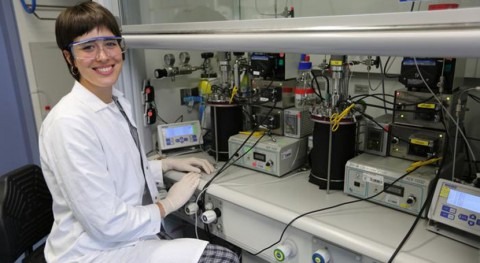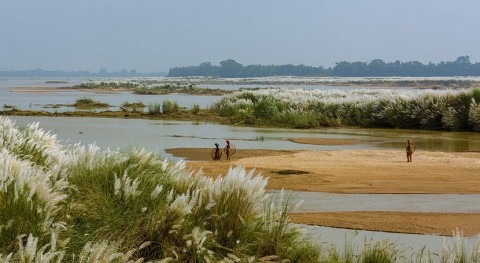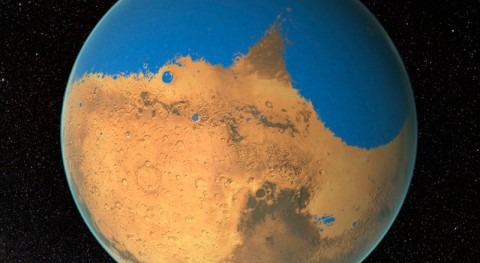A new study shows that future ecosystem functioning will increasingly depend on water availability. Using recent simulations from climate models, an international team of scientists found several "hot spot regions" where increasing water limitation strongly affects ecosystems. These include Central Europe, the Amazon, and western Russia. Pinpointing such regions is essential: Healthy ecosystems are vital for society, as they provide several key services, such as food and water security, the uptake of atmospheric carbon dioxide emitted by human activities, and evaporative cooling.
Climate change introduces changes in energy and water availability for plants. Whereas energy availability is consistently increasing across the globe following global warming, trends for regional water availability are more uncertain in the future.
In a new study published in Nature Climate Change, a group of researchers from Germany, the Netherlands and Australia investigated how these simultaneous changes in energy and water availability affect vegetation functioning across the globe. For this purpose they analyzed future climate simulations from several state-of-the-art Earth system models, covering the years 1980-2100. Thereby, they calculated changes in energy- and water-limitation of the global vegetation. "We found that globally ecosystems become thirstier by becoming increasingly water-limited," says Dr. Jasper Denissen, former Ph.D. student at the Max Planck Institute for Biogeochemistry in Germany and first author of the study.
Healthy vegetation needs sufficient energy from solar radiation and water from soils. This allows the vegetation to do photosynthesis, to grow, and thus to provide evaporative cooling. This happens as during photosynthesis, tiny openings on the leaf surface, termed stomata, open up to draw carbon dioxide (CO₂) from the atmosphere. At the same time, water from inside the leaves evaporates through the stomata into the atmosphere, thus providing a cooling effect. This cooling is important especially during heat waves. It can help to dampen the highest hot temperature extremes and associated heat stress, potentially reducing heat-related deaths.
The increasing dependence on water is projected to happen in different ways. Not only does water dependence increase in already water-limited ecosystems, but many regions where ecosystems were formerly energy-limited actually shift into water limitation. According to the study an additional 6 million km² of our land surface will become water-limited in 2100 as compared to 1980. And this effect not only occurs in space, it also happens in time. The duration of water limitation will increase by as much as two months per year in almost half of the study area.
"These shifts in the vegetation's water limitation in space and time leave vegetation craving for water across larger regions and during longer consecutive periods," says Dr. René Orth, another lead author of the study. This could affect the functioning of vegetation and consequently the quality and quantity of their services to society. This highlights the need to understand the response of ecosystems to climate change in order to inform potential adaptations in agriculture or forestry management practices to maintain ecosystem functioning and services.










![One of the bioreactors that Kartal and his colleagues used to grow cells of K. stuttgartiensis in the lab. The bright red color is due to the presence of iron-containing cytochrome c proteins in the… [more] Credit: Boran Kartal Microbes can grow on nitric oxide](https://smartwatermagazine.com/sites/default/files/styles/thumbnail-480x263/public/microbes-can-grow-on-nitric-oxide.jpg?itok=GxMpGCDz)